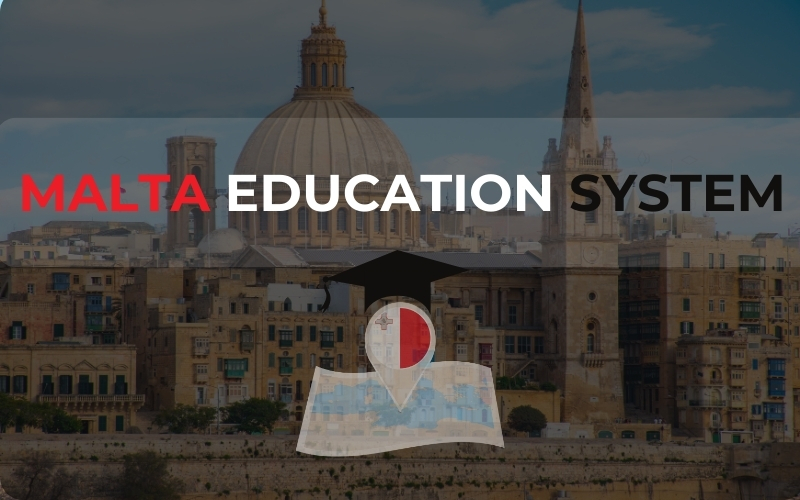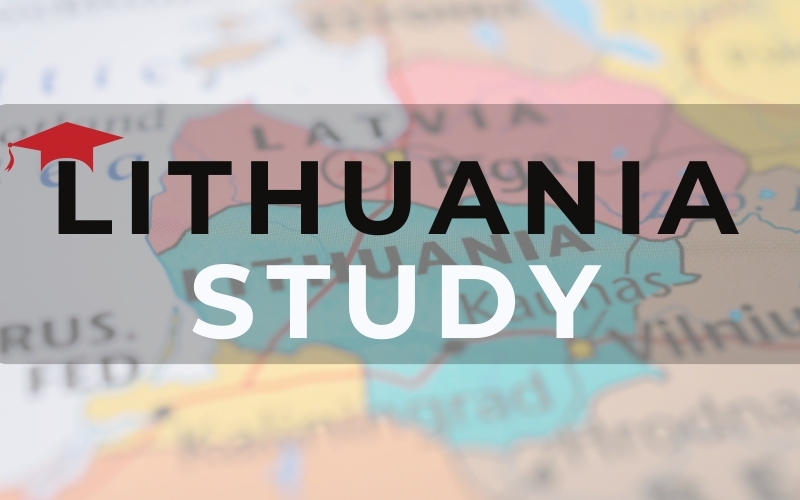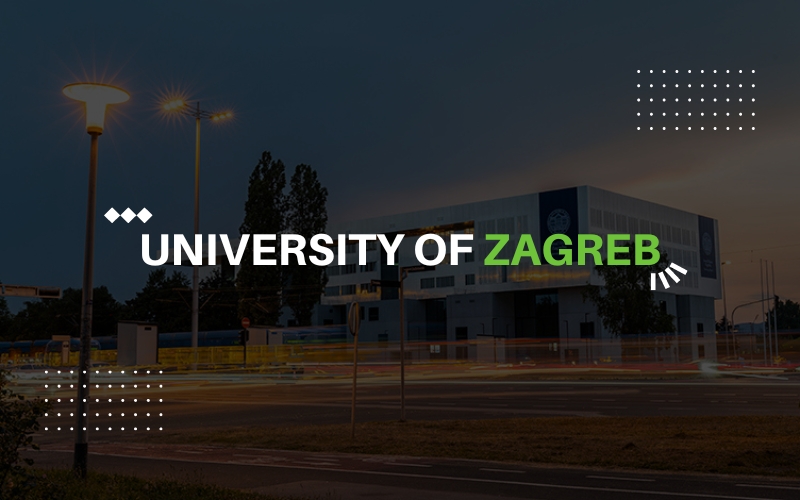Fri, 04 Oct 2024 by
Edubuild Learning
Study and Job Opportunities in Malta: Comprehensive Guide
Malta, a picturesque archipelago in the heart of
the Mediterranean, is more than just a popular tourist destination. This small
yet vibrant country has increasingly become a sought-after hub for
international students and professionals. Boasting a rich cultural heritage, a
thriving economy, and a welcoming environment, Malta offers a unique blend of
opportunities for those looking to further their education and careers.Malta’s history is as diverse as its population.
The islands have been influenced by a succession of rulers, from the
Phoenicians and Romans to the British, each leaving a lasting imprint on
Maltese society. Today, Malta’s population is a mix of ethnicities, including
Italians, Maltese, Greeks, British nationals, Palestinians, and Sindhis,
creating a culturally rich and dynamic society.The official languages in Malta are English and
Maltese, making it an accessible destination for international students. The
country’s education system is known for its innovative approach, particularly
in tertiary education, which focuses on global entrepreneurship and
technology-driven programs. Malta's unique student-worker scheme allows
students to balance six months of study with six months of work, providing
valuable practical experience alongside academic learning.Why Study in
Malta?Malta’s education system is internationally
recognized, with universities offering a wide range of courses in fields such
as Business, Accounting & Finance, Digital Games, Engineering, Science
& Technology, Economics, Health Sciences, Anthropology, Medicine, Nursing,
Psychology, Education, Law, Arts, and Tourism. The multidisciplinary environment,
combined with Malta’s cultural richness, creates an ideal setting for
international students to thrive.One of the standout features of studying in Malta
is the ability to do so without IELTS, provide students can demonstrate English
proficiency at an intermediate level. Malta’s universities are renowned for
their comprehensive curriculum and innovative teaching methods, making them a
great choice for students from around the world.Moreover, Malta offers free healthcare services for
international students, along with the potential for permanent residency. The
country’s status as a UNESCO World Heritage site, with ancient monuments like
Valletta, the seven megalithic temples, and the Hypogeum, adds to the allure of
studying in Malta.Academic Excellence in MaltaMalta’s education system is deeply rooted in both
tradition and modernity, offering a variety of programs that cater to the needs
of a globalized world. Popular fields of study include:
Business,
Accounting, and Finance
Digital
Games and Technology
Engineering
and Health Sciences
Psychology
and Law
Tourism,
Travel, and Culture
These programs are available across several
prestigious institutions, such as the University of Malta, American University
of Malta, and Malta College of Arts, Science, and Technology (MCAST). The
quality of education is reflected in the global rankings, with many Maltese
universities recognized for their rigorous academic standards and commitment to
student development.You can watch Top Universities
in MaltaMalta is home to several prestigious institutions,
including:
University
of Malta:
The oldest and most prestigious university in the country, offering a wide
range of undergraduate and postgraduate programs.
American
University of Malta:
Known for its strong emphasis on liberal arts education and critical
thinking.
Malta
College of Arts, Science, and Technology (MCAST): A leading vocational education institution
offering programs in arts, technology, and applied sciences.
St.
Martin’s Institute of Higher Education: Specializes in providing high-quality
education in computing, business, and humanities.
STC
Higher Education:
Offers industry-relevant courses in technology and business, catering to
the demands of the modern job market.
Queen
Mary University of London (QMUL) Malta: A branch of the renowned UK University,
offering medical degrees in a unique Mediterranean setting.
These institutions are ranked among the best in
Europe and offer a wide range of programs designed to equip students with the
skills needed to excel in their chosen fields.Also read: University of Zagreb: Comprehensive Guide for Local and International
StudentsMalta Student Visa
RequirementsTo study in Malta, international students must
obtain a student visa or a Schengen visa. The requirements include:
A
completed student visa application form
A
valid passport with recent passport-size photographs
An acceptance
letter from a recognized Maltese university
Proof
of medical or travel insurance
Evidence
of sufficient funds to cover tuition and living expenses
Proof
of accommodation in Malta
Flight
ticket or travel itinerary
Visa
application fee payment receipt
Copies
of academic documents and other required paperwork
Students should contact their local Malta Embassy
or Consulate for the most up-to-date information on visa applications.Cost of Studying
and Living in MaltaStudying in Malta is relatively affordable compared
to other European countries. Tuition fees vary depending on the course and
institution, but students can expect to spend around €2,000 per year on
education. Living expenses are also manageable, with accommodation costs
ranging from €250 to €700 per month, depending on whether students choose
on-campus or off-campus housing.Overall, students should budget around €300 per
month for other living expenses, making Malta an economically viable option for
international education.Work Opportunities
for Students in MaltaMalta’s student-worker scheme is one of the
country’s most attractive features. Students enrolled in programs longer than
90 days can apply for an employment license, allowing them to work while
studying. The conditions include:
Attending
a minimum of 15 hours of classes per week
Working
a maximum of 20 hours per week
Securing
a job offer and submitting an employment application with the employer’s
support
This scheme not only helps students gain valuable
work experience but also makes it easier to support their studies financially.Job Market and
Career Growth in MaltaMalta’s economy is robust, with a strong focus on
services such as financial services, online gaming, and tourism. The island
nation is also seeing growth in technology, healthcare, and education sectors,
making it an attractive destination for international graduates.Salaries in Malta vary by industry and experience
level, with average annual earnings around €24,000. However, those in
high-demand sectors like financial services, gaming, and technology can expect
to earn between €25,000 and €50,000 per year.Malta’s strategic location, business-friendly
environment, and skilled workforce contribute to its growing economy, offering
plenty of opportunities for career progression, promotions, and professional
development.Permanent
Residency in MaltaFor international students looking to stay in Malta
after completing their studies, obtaining permanent residency (PR) is a viable
option. PR cards, once granted, are valid for life, though they must be renewed
every five years. Eligibility requirements include being at least 18 years old
and fulfilling certain criteria such as having valid income, medical insurance,
and no criminal record.The PR application process takes approximately 6-8
months, and it provides a pathway for students to build a long-term life in one
of Europe’s safest and most welcoming countries.ConclusionMalta is a small island nation with big
opportunities. From its world-class educational institutions to its thriving
job market, Malta offers international students an environment where they can
excel academically and professionally. With affordable education, a supportive
work-study scheme, and the potential for permanent residency, Malta is an ideal
destination for those looking to build a successful future in Europe.
Read more









Write a public review